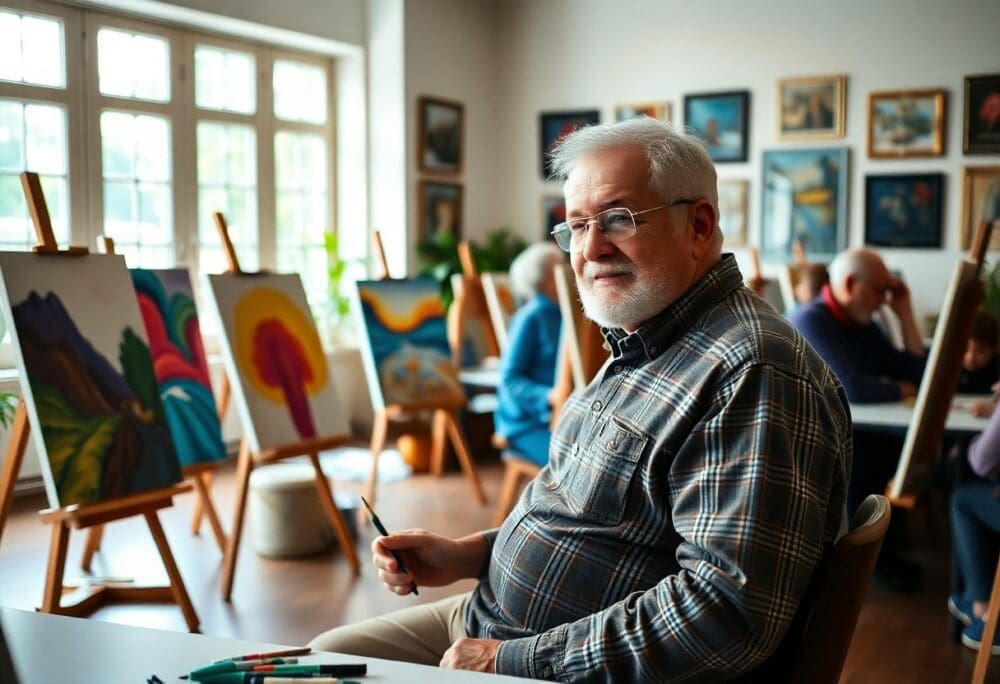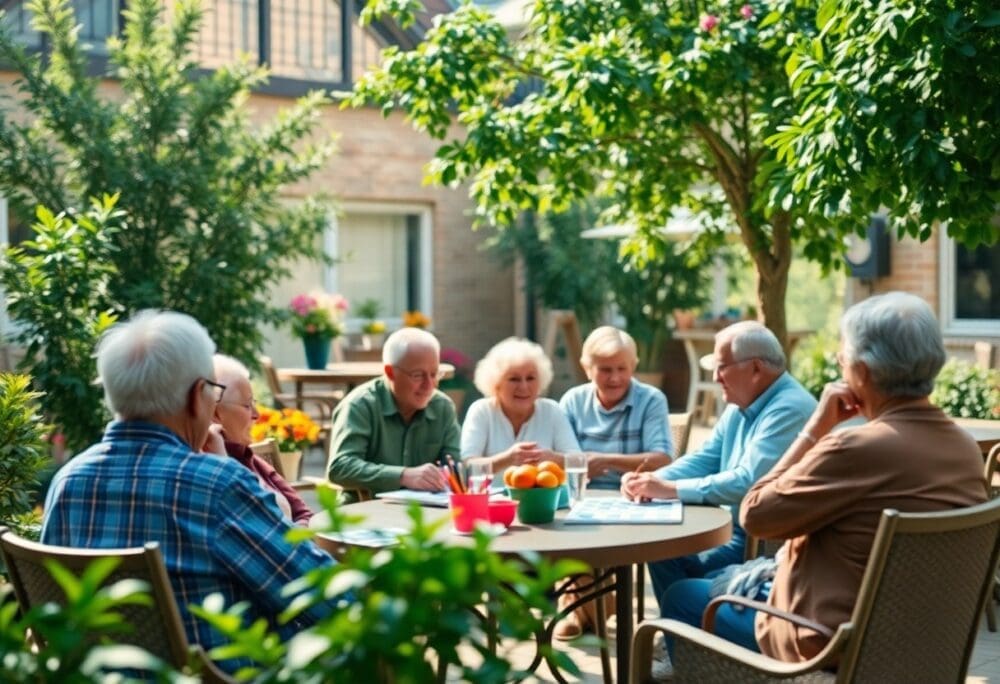With a new chapter of life awaiting you in retirement, staying active and engaged is vital for your well-being. Transitioning to a different community can present both opportunities and challenges. You may find yourself in a vibrant setting full of activities and social connections, but isolation can creep in if you don’t take initiative. Embracing local resources, exploring hobbies, and meeting new people are key strategies to enrich your daily routine and enhance your quality of life in this next phase.
Key Takeaways:
- Explore local clubs, classes, and events to meet new people and build a community.
- Engage in outdoor activities and sports to maintain physical health and enjoy the environment.
- Volunteer your time and skills to connect with others while contributing to your new community.
Understanding the Challenges of Relocation
Relocating for retirement presents unique hurdles. It’s not merely about finding a new home; it encompasses adjusting to a different community, lifestyle, and sometimes even climate. Many retirees find themselves grappling with practical issues, such as navigating new healthcare systems or transportation options. On top of that, the emotional and social transitions can deeply impact your adjustment period, making it vital to address these challenges proactively for a smoother transition.
Emotional Adjustment
Your emotional landscape often undergoes a significant shift after moving. You may feel a mix of excitement and anxiety facing the unknown in a new environment. Transitioning can stir feelings of loss related to leaving familiar places and relationships behind. Acknowledging these emotions and allowing yourself time to process and adapt is vital for achieving a fulfilling retirement in your new location.
Social Isolation
Social isolation can be an unexpected challenge when you relocate for retirement. You might find yourself lacking a support network or feeling disconnected from former friends. This sense of loneliness can lead to emotional distress and impact your overall well-being. Engaging in community activities, such as local classes or volunteer opportunities, is crucial to establish new friendships and combat feelings of isolation.
Statistics show that over 30% of retirees experience significant social isolation during their first year after a move. Engaging actively in local clubs and activities helps mitigate this risk by providing a platform for interaction and support. As you explore your new surroundings, prioritize opportunities to meet others, whether it’s through joining hobby groups, attending community events, or participating in fitness classes. By proactively building connections, you counteract the feelings of loneliness, making your retirement years more fulfilling and connected.
Finding Local Activities
To enhance your retirement experience, seek out local activities that resonate with your interests. Explore community centers, libraries, and social media groups where you can discover classes, workshops, and clubs tailored to your hobbies. Websites like Staying mentally and physically active in retirement provide great insights and suggestions from fellow retirees about engaging in your new community.
Sports and Fitness Opportunities
Engaging in sports and fitness activities is a fantastic way to stay active. Look for local yoga classes, swimming pools, or hiking clubs tailored for seniors. Join community leagues for friendly competitions in golf, tennis, or pickleball, which help you stay fit while making new friends.
Volunteer Work and Community Service
Volunteering provides an enriching sense of purpose. Many organizations seek retirees to assist in various roles, from mentoring youth to supporting local charities. Not only does volunteering keep you active, but it also fosters important connections within your new community.
Consider organizations like food banks, hospitals, or animal shelters that depend on dedicated volunteers. Engaging with different age groups can broaden your perspective and enhance your social life. For example, offering tutoring services can create meaningful relationships and allow you to share your skills, making a significant impact in your community. Embrace this opportunity to connect while contributing to causes that matter to you.
Building a Social Network
To thrive after moving for retirement, you must actively build a social network. Surrounding yourself with like-minded individuals enhances your lifestyle and provides emotional support. The right connections can lead to new friendships and a sense of belonging in your new community. Establishing this network will not only combat feelings of isolation but also enrich your daily experiences.
Joining Clubs and Organizations
Participating in local clubs and organizations can significantly expand your social circle. Whether you gravitate towards book clubs, hiking groups, or volunteer organizations, engaging in these activities allows you to meet people who share your interests. Many communities offer a variety of clubs specifically geared toward retirees, making it easier for you to connect and bond with others.
Attending Local Events
Local events are excellent opportunities for building relationships in your new community. Farmers’ markets, art fairs, and community festivals are not only enjoyable but also provide a relaxed atmosphere to meet new people. Engage in conversation, attend workshops, or volunteer at these events to deepen your connections and integrate more fully into your new environment.
Furthermore, many towns host regular social gatherings, such as monthly meet-and-greets or seasonal festivals that draw large crowds. Participating in these events can expose you to a diverse group of individuals, from various backgrounds and interests. For instance, in many communities, seasonal events attract hundreds, providing numerous opportunities for you to meet others and engage in meaningful conversations, perhaps even inviting new friends to join you for future activities.
Exploring New Hobbies
Engaging in new hobbies after moving can be a rewarding way to meet new friends and enrich your life. From local classes to community events, there are endless opportunities to explore interests you may have never considered. Whether it’s gardening, painting, or joining a book club, embracing new activities can provide a sense of belonging and purpose in your new environment.
Creative Pursuits
Creative hobbies can significantly boost your mental well-being and creativity. Activities like painting, pottery, or photography allow you to express yourself while connecting with like-minded individuals in workshops or community centers. Plus, engaging in art can enhance your cognitive skills and reduce stress, making it an excellent way to unwind and enjoy your retirement.
Learning Opportunities
Local community colleges and organizations often offer a variety of courses tailored for seniors. You can find classes in subjects ranging from technology to cooking, providing not only knowledge but also social interaction. Many retirees find joy in acquiring new skills, and these classes cater to your pace and interests.
Taking advantage of learning opportunities can also stimulate your mind and broaden your horizons. For example, the National Institute on Aging highlights that engaging in lifelong learning can have significant benefits, such as improving cognitive function and boosting memory. Many retirees take classes in fields such as foreign languages or computer skills, opening doors to new experiences. Local libraries and community centers frequently host free or low-cost workshops, making it easy to nurture your curiosity and make new connections.
Staying Physically Active
Staying active is necessary for maintaining your health and well-being in retirement. Engaging in regular physical activity promotes not only physical fitness but also mental sharpness. Look for local community centers or fitness programs that specifically cater to seniors, offering a variety of classes suited to different skill levels. Regular activity helps you feel more energized and can even introduce you to new friends who share similar interests.
Exercise Routines for Seniors
Creating a consistent exercise routine can greatly enhance your physical health. Aim for activities that include a mix of strength training, flexibility exercises, and cardiovascular workouts. Simple practices like yoga or tai chi improve balance and can be tailored to your ability. Joining a local gym or fitness class designed for seniors will provide structured guidance and motivation.
Outdoor Exploration
Exploring the outdoors offers numerous benefits, from enjoying fresh air to discovering local ecosystems. Take advantage of parks or trails in your new area—walking, hiking, or even birdwatching can significantly boost your physical activity levels while immersing you in nature. Consider forming a walking group, making both exercise and socialization enjoyable.
Outdoor exploration can also serve as a gateway to adventure and community connection. Many local parks host programs that encourage group activities such as guided nature walks or gardening clubs. Check for seasonal activities, such as organized bike rides or charity runs that can keep you engaged while exploring your surroundings. By making outdoor exploration a priority, you not only stay active but also nurture a deeper appreciation for your new environment.
Maintaining Mental Engagement
Staying mentally active is just as important as physical activity. Engaging your mind through various activities not only reduces the risk of cognitive decline but also enhances your overall well-being. From educational pursuits to social interactions, there are numerous avenues for mental stimulation that can enrich your retirement experience.
Lifelong Learning
Embrace opportunities for lifelong learning by enrolling in classes that pique your interest. Whether online or in-person, educational platforms and community colleges offer courses ranging from art to history, allowing you to acquire new skills. Join workshops or attend lectures in your area to broaden your knowledge and connect with like-minded individuals.
Brain Games and Puzzles
Engaging in brain games and puzzles can significantly enhance cognitive abilities. Activities like crossword puzzles, Sudoku, and memory games challenge your brain and help you think critically. These exercises can improve problem-solving skills, memory retention, and overall mental agility, ensuring you stay sharp as you age.
Incorporating brain games into your routine can be both fun and beneficial. Studies show that regular participation in such activities can improve cognitive performance by up to 25%. Whether you play solitary games or enjoy competitions with friends, setting aside time for these mental challenges fosters social interaction and maintains your cognitive health. Consider joining a local puzzle club or engaging in online trivia nights to add a social dimension to your brain training.
To wrap up
From above, it’s clear that staying active and engaged after moving for retirement requires a proactive approach. You can explore local communities, join clubs, and participate in social activities that pique your interests. Staying physically fit through regular exercise is also vital to enhancing your well-being. For more guidance, check out 13 Ways to Keep Your Mind and Body Active in Retirement. Embracing these opportunities will enrich your retirement experience significantly.
FAQ
Q: What are some effective ways to meet new people after relocating for retirement?
A: Joining local clubs or organizations, attending community events, and participating in classes such as art or fitness can provide opportunities to connect with others who share similar interests.
Q: How can I stay physically active in a new environment?
A: Exploring walking trails, joining a local gym or fitness group, or enrolling in yoga or dance classes can help maintain physical activity and promote a healthy lifestyle in your new surroundings.
Q: What hobbies can I pursue to engage my mind and keep me active during retirement?
A: Taking up gardening, painting, learning a musical instrument, or participating in book clubs can stimulate creativity and keep the mind engaged while providing enjoyment and fulfillment.








